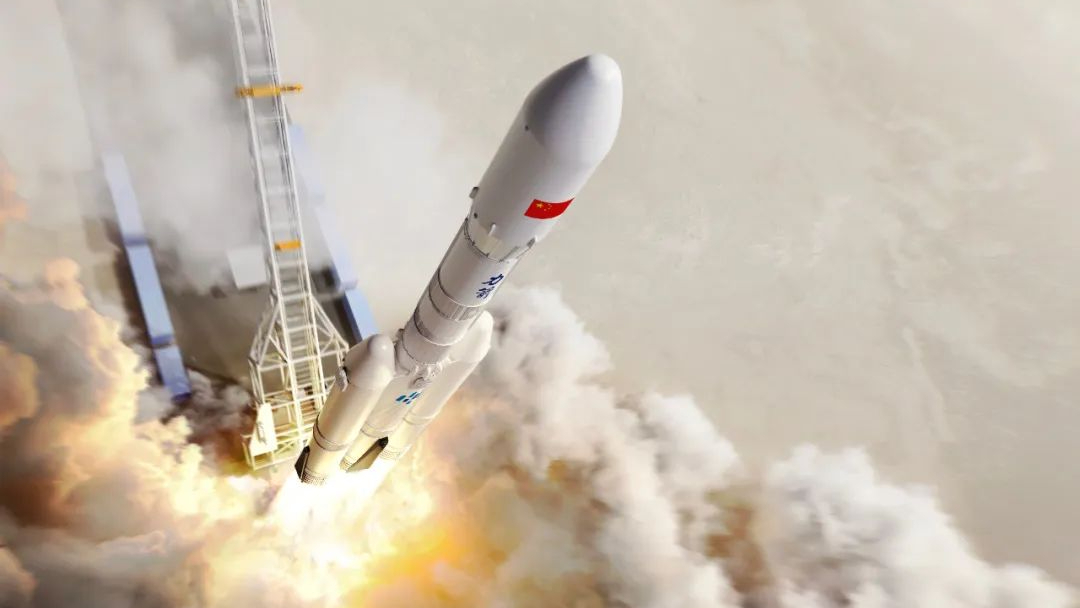
A Chinese launch company has set August 2025 as the target for the first launch of its Kinetic-2 liquid propellant rocket.
CAS Space, whose full name is Zhongke Aerospace Exploration Technology Company, has already launched its Kinetica-1 (Lijian-1) solid rocket, even briefly setting a national record for the number of satellites aboard a single launch with the vehicle. But the company is also planning a larger, more complex liquid propellant launcher that will eventually be reusable.
Kinetica-2 will be 174 feet (53 meters) tall and consist of an 11-foot-wide (3.35 m) core stage, with two side boosters, Yang Haoliang, vice-president of CAS Space, told Chinese media on Jan. 12. It will use kerosene and liquid oxygen as propellant and be able to carry 17,200 pounds (7,800 kilograms) of payload into a sun-synchronous orbit, or 26,450 pounds (12,000 kg) into low Earth orbit.
Related: China's record-breaking Gravity-1 rocket aces amazing debut launch from ship at sea (video)
Early Kinetica-2 launches will carry experimental payloads for reusability development, according to the company. The plan is to gradually develop core stage and booster reusability by 2028.
CAS Space has already taken steps in the research and development efforts needed to make reusable rockets. In April last year the firm tested liftoffs and landings with a jet-powered prototype to test guidance, navigation and control systems, and the software and communications needed to achieve such a feat.
There had been discussions on concept art regarding Kinetica-2. The answer is YES; we will develop reusability into Kinetica-2 in steady steps.Kinetica-2 will see its inauguration launch in Aug 2025. Milestones are planned for 1st stage reusability before 2028. Details below: pic.twitter.com/ZPNgDl9JGzJanuary 12, 2024
CAS Space was registered in December 2018. It is a spinoff from the state-owned Chinese Academy of Sciences (CAS). The company does not launch China’s major civilian or military missions and needs to forge its own commercial future.
It is also developing a suborbital tourism service similar to that offered by U.S. company Blue Origin. It is also initiating a low-cost rideshare program for affordable space science missions.
The company will face competition in China from commercial firms including Landspace, iSpace, Space Pioneer, Galactic Energy and Orienspace.







